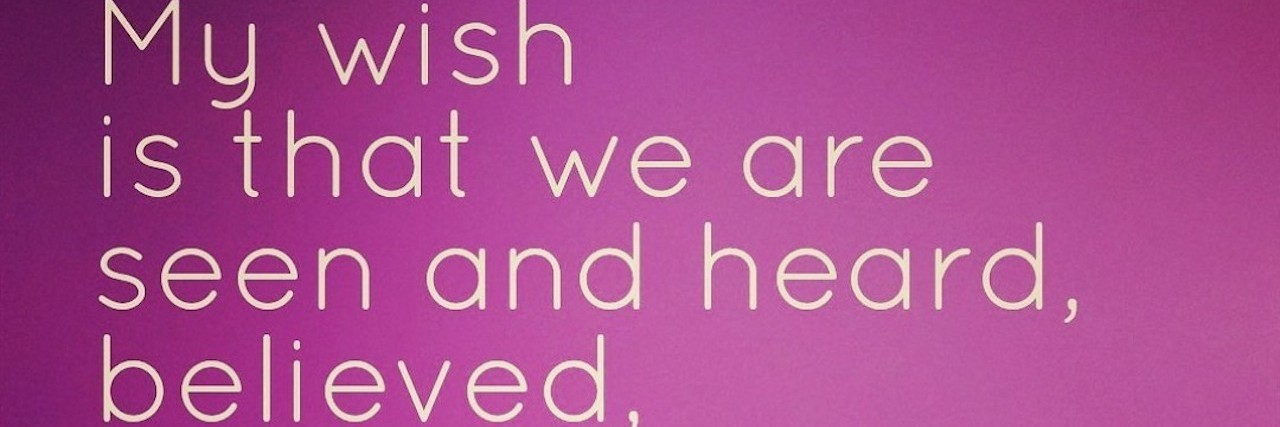I was recently asked, “What do you wish for yourself and others with endometriosis?” I found it to be an enormous question.
In March, thousands of us from around the world were busy prepping signs on yellow paperboard and readying our sneakers for yet another Worldwide EndoMarch as part of Endometriosis Awareness Month. I kept thinking of all the reasons why we set out to do this. It’s for all the wishes, and there is so much to wish for…a cure, of course, but until then…
I wish that every young person who struggles with pain from periods would feel like they could talk about it, ask questions, and seek help without sense of shame. I wish every person who found themselves with symptoms that resemble endo — whether they be female, male, transgender, old or young — was listened to and not dismissed by those around them, including their doctor. I wish the average physician would become more educated about the facts and myths of this disease, so as to not mistreat their patients; such as erroneously saying a hysterectomy, the removal of ovaries, pregnancy, or treatment with medication will cure the disease.
I wish general practitioners would recognize that they likely do not have enough specific training to properly treat endo. I wish ablation, or the burning of endo, would be removed as a treatment option, since it has shown to have a failure rate of 80-90 percent and there is a better option of wide excision with an endo specialist. I wish that primary caregivers (this also means general OB/GYNs) would refer patients with suspected endo to physicians who specialize in the highly complex treatment of endometriosis, and who are skilled in the practice of wide excision surgery.
I wish we, as patients, could trust our doctors to guide us on best treatment, instead of many of us needing to scour message boards, support groups, and medical research in order to figure things out ourselves. I wish that the American College of Obstetricians and Gynecologists would listen to patients and specialists dealing with endometriosis, and update the standards of practice to ensure thorough and accurate education, training, and practice for the treatment of endometriosis.
I wish misogyny didn’t play a role in my medical care and that “women’s diseases” were taken just as seriously as all others. If that was the case, this disease would have received better funding and research long ago, areas that are still severely lacking.
I wish that no one else would go 24 years, left to suffer alone, before finally being diagnosed like I did. Even for a condition estimated to affect 1 in 10 women and transgender men, there is a typical delay of 7-10 years for diagnosis. This is unacceptable and potentially life-altering.
I wish I had never had this horrid systemic disease, but I do, and since there is currently no cure I wish more people at least understood what it means to have endometriosis. Understanding can be the difference between losing or maintaining relationships, being accepted for where you’re at instead of feeling like you’re letting people down, or receiving better accommodation through work and life instead of constantly feeling shame from something we have no control over.
I wish…
A version of this story originally appeared instagram.com/p/BvAnVDKnhaN.
Photo credit: AngelaAn.Wix.com/arts

